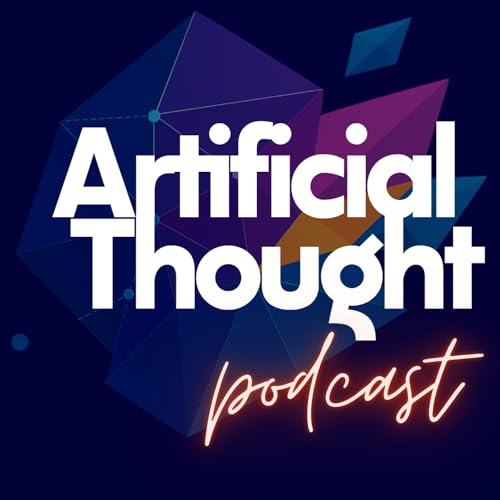This episode offers a short overview of Co-Intelligence: Living and Working with AI by Ethan Mollick, a book that argues for a shift in how we relate to artificial intelligence—not as a tool to control or replace us, but as a “co-intelligence” to collaborate with.Mollick suggests that large language models represent a new kind of thinking system: statistically trained, behaviourally unpredictable, and full of potential when paired with human judgement. The book explores how AI is reshaping creativity, education, decision-making, and the boundaries of human work—and why getting to know these systems deeply may be the only way to use them well. These reflections explore what it means to collaborate with something that predicts rather than understands, and how to navigate a system that offers insight, but not intent.Mollick, a professor at the Wharton School of the University of Pennsylvania, is known for making AI accessible to a wide audience through research-informed teaching and practical writing. This book is part of that ongoing effort of translating technical developments into human terms, without losing sight of their complexity.He is one of the most accessible voices writing about generative AI today, and Co-Intelligence is a must-read as an entry point for thinking through the trade-offs involved in working with these systems. It’s not a technical book, but a strategic one—written from the position of a curious user trying to understand what we’ve built, and how to live with it. It’s also well worth it to follow him on LinkedIn, and here on Substack if you’re not doing so already!Key ideas from Ep. 7: Co-Intelligence and the Shape of CollaborationThis episode draws on Ethan Mollick’s Co-Intelligence, a book about how artificial intelligence—especially large language models—is reshaping how we think, work, and create. Mollick’s core argument is that AI is neither a tool to be blindly automated nor a mind to be trusted. It is something in between: a strange, alien co-intelligence that becomes useful when paired with human context, scepticism, and purpose.Here are a few key themes that stood out for me:1. Thinking with prediction, not intentionLLMs behave like minds, but they’re built to predict—not understand.* These systems work by forecasting the next likely word or token based on statistical training, not internal logic or intention.* Users often experience them as responsive or intelligent, but their outputs are shaped by pattern probability, not comprehension.* This creates a unique kind of collaboration: helpful, high-variance, and sometimes startling—but never grounded in awareness.Understanding this core mechanism matters. It helps explain both the creativity and the unreliability.2. Human–AI collaboration is messy and unevenThe future isn’t full automation—it’s learning how to work with jagged, unpredictable systems.* Mollick introduces the idea of the Jagged Frontier: some tasks AI handles impressively; others, just adjacent, remain out of reach.* Effective collaboration involves experimentation. Users have to try, observe, and adjust—there’s no universal guide.* The most successful users are often user innovators—those who explore creatively, adapt prompts, and learn from breakdowns.Treating AI as a fixed tool misses the point. It’s better understood as a cognitive partner with blind spots.3. Co-intelligence depends on human framingWhat makes AI valuable isn’t what it knows—it’s what you bring to the interaction.* LLMs can offer new framings, challenge assumptions, and break status quo bias—but only when prompted carefully.* Mollick emphasises the importance of defining personas and constraints to guide the system’s output.* AI can generate novelty, but it’s the human who selects, shapes, and applies it. That’s where the real intelligence lives.The value of co-intelligence lies not in automation, but in alignment—with human goals, context, and curiosity.Always curious how others are making sense of these tools - until next time. This is a public episode. If you would like to discuss this with other subscribers or get access to bonus episodes, visit artificialthought.substack.com



